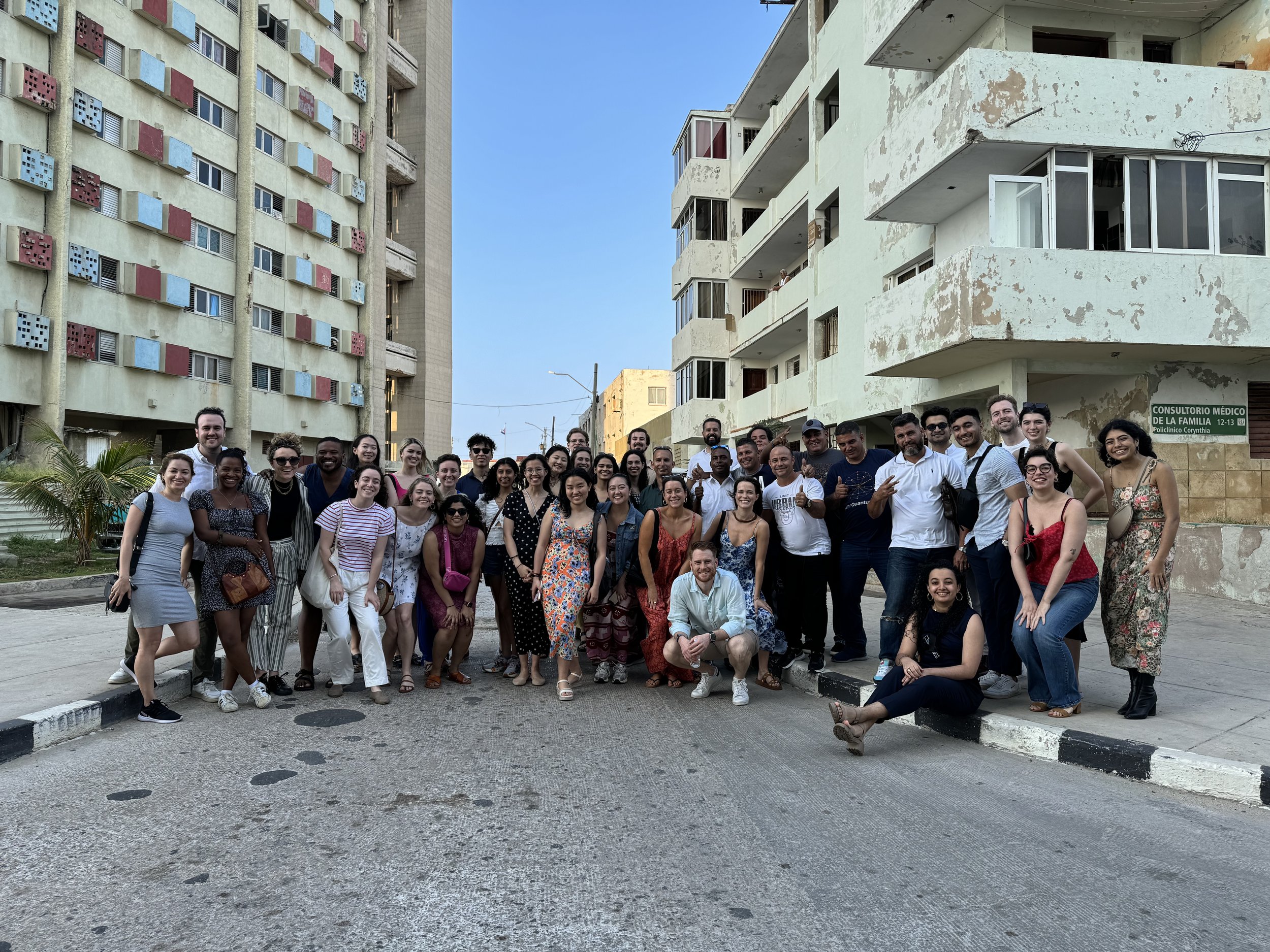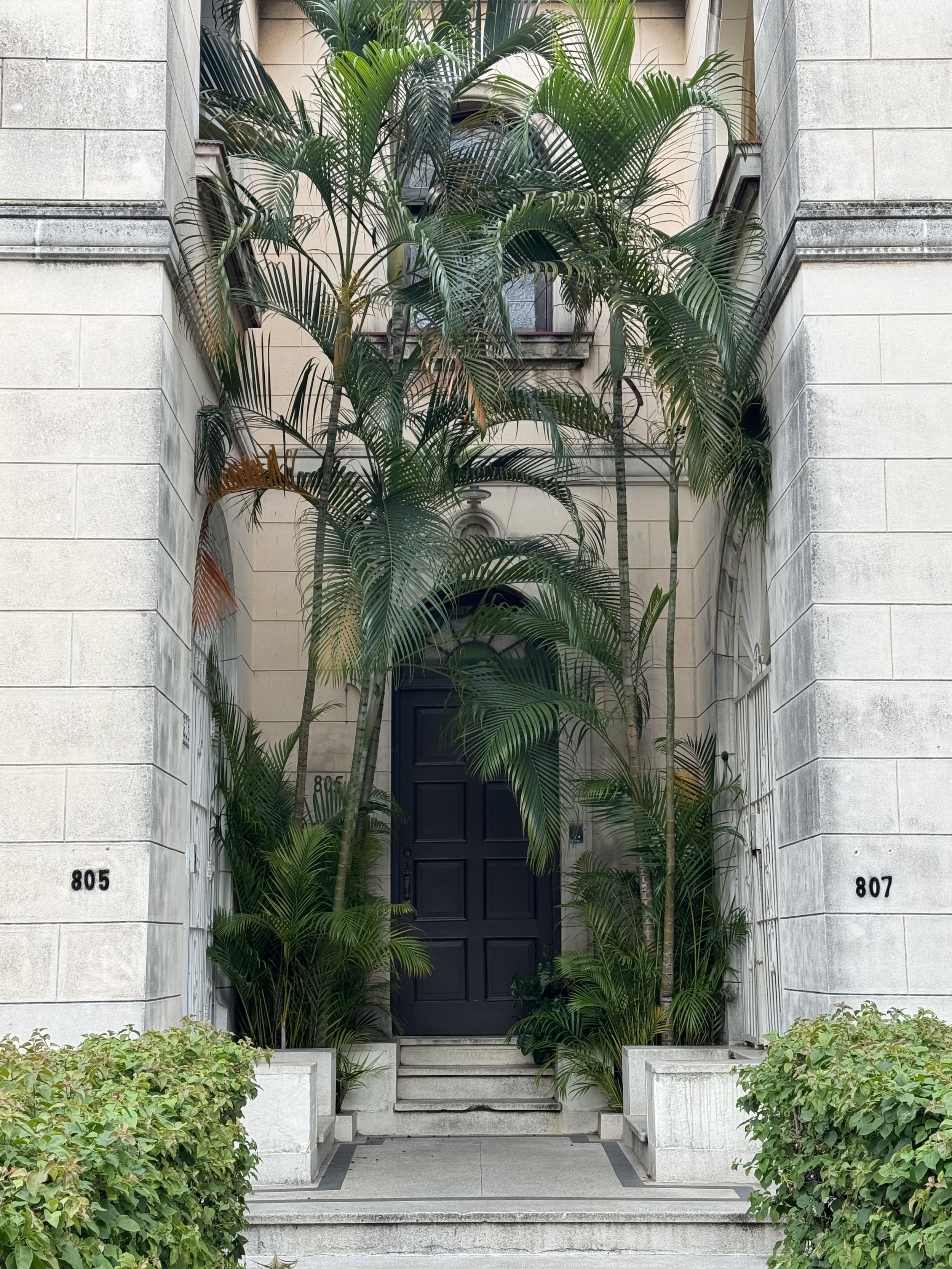Cubans and Americans should talk
2024 Harvard Grad Student and Alumni-led trek to Cuba
Every spring I have the privilege of bringing a group of Harvard graduate students to Cuba for a series of cultural exchanges. We meet with entrepreneurs, designers, musicians, U.S. officials, and more.
In putting these trips together, I do little more than facilitate. They would not be possible without the help of enthusiastic Harvard students (some of whom step up to lead parts of the trek) and the support of an experienced, U.S.-based educational travel company.
The annual trip is one of my several high-cost passion projects (both in terms of personal time and money), and maybe the only one my wife Camila supports. She sees the same need I see: greater engagement between the United States and Cuba. As long as the status quo persists, Cuban people will continue to suffer in poverty.
Cuba is an extremely sensitive political topic. Although I do not have any partisan objectives with these trips, I do maintain one simple belief: Americans and Cubans should talk.
A multi-family dwelling in Vedado
My full-time work used to be focused on increasing internet access for Cubans, and for some time I was able to devote more time to analysis of the U.S.-Cuba relationship through this blog. Now that my work has taken me elsewhere, I at least want to share an annual update in connection with the Harvard graduate student trek I lead.
In that spirit, here are my brief observations about Cuba in 2024:
Shortages are visible everywhere. Even while driving around Havana, Cuba’s economic center, you see long lines for gasoline, basic food items, and more. Power outages plague the island, occasionally hitting downtown Havana, where the government tries to keep the lights on for tourists. This was the case in 2023; things appear worse in 2024.
Many Cubans feel that poverty is worse now than it was during the Special Period. The Special Period refers to Cuba’s prolonged era of economic crisis beginning in the early 1990s. The Soviet Union, Cuba’s main economic partner, had collapsed, and food, fuel, and medicine became scarce. People talk of eating rats to survive; truly terrible times. Many Cubans talk about the current situation as being worse than the Special Period.
Financial reforms have further complicated daily life. One Cuban showed us all of his “credit cards,” but stated he had “no cash.” The multiplication of cards that are required to live daily life are the result of financial reforms implemented by the Cuban government. For various reasons, the government is discouraging cash transactions and encouraging digital purchases. Because cash is still king (especially in U.S. dollars), you see people trying to take their meager government salaries out of ATMs—waiting in long, outdoor lines to do so.
The gap between the haves and have-nots is widening quickly. Recent Cuban government reforms have allowed more people to start businesses and make money. Owning a popular restaurant, for example, has allowed some Cubans to get very rich in comparison to their neighbors. With their newfound wealth, the wealthy class is finding that there is not much to buy with their money. Looking outside of Cuba, they might import a luxury car, paying a 20% premium to the government. The unprecedented display of wealth is not only jarring, but also bemusing: the only gasoline sold in Cuba does not work for a luxury car—after a few months on Cuban “combustible,” the cars are breaking down.
A doorway in Vedado
Cubans are watching the U.S. Presidential Election closely. Cubans are on edge about the upcoming U.S. presidential election. Life on the island is existentially linked to the policies of the White House, and Cubans are hoping for more favorable policies under a second Biden term. Given how little attention President Biden has given to Cuba so far, however, few Cubans believe that change will come.
Safety in Cuba has been slightly diminished. Public services around Cuba, including policing, appear battered. Cuba has long been known as an extremely safe place for visitors, but with an obvious cost to individual rights for Cubans. With a crumbling state and recent economic reforms, we’re starting to see more criminal activity. Havana is still safe for visitors, but not quite as locked down as an authoritarian government would like.


